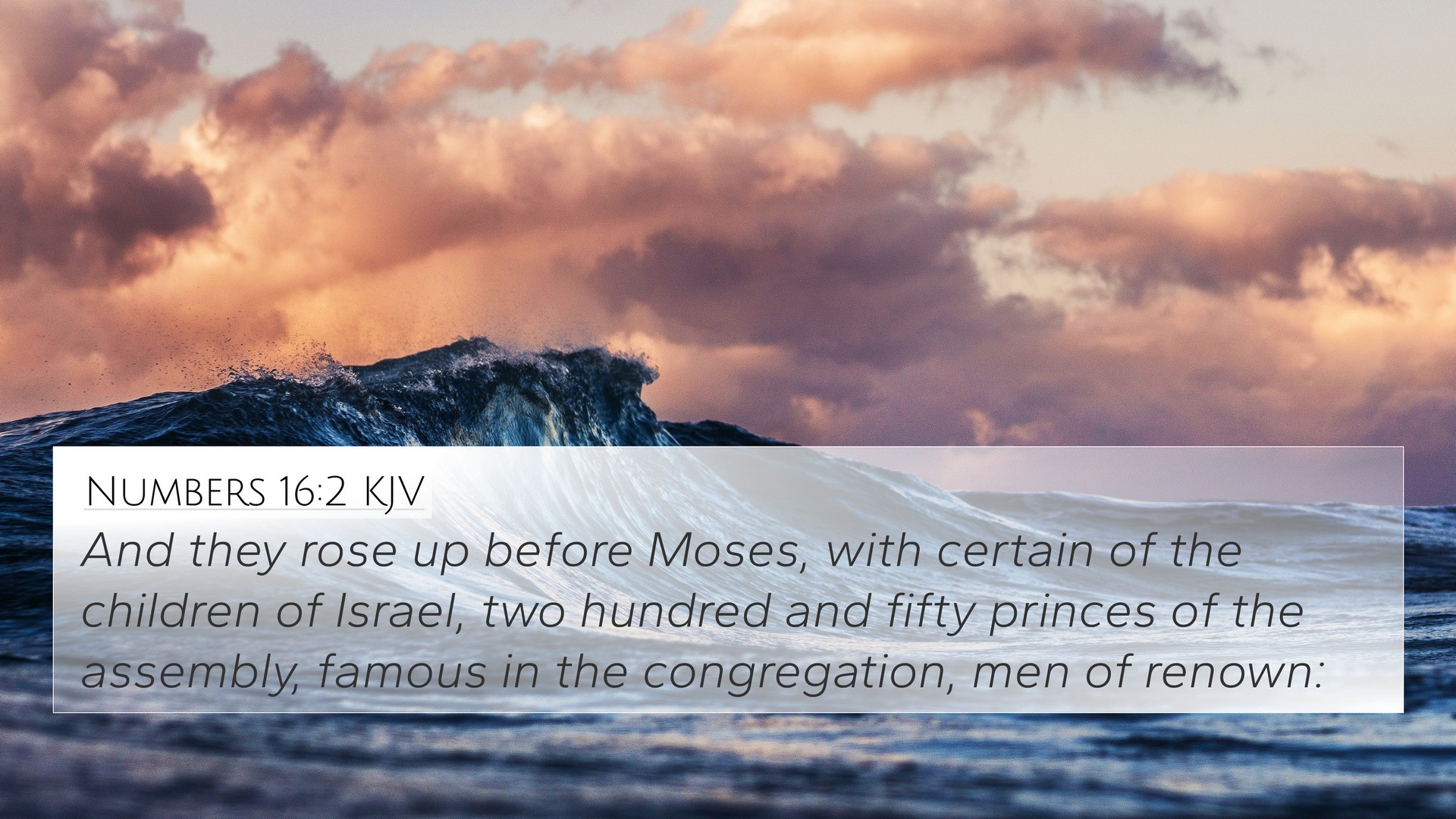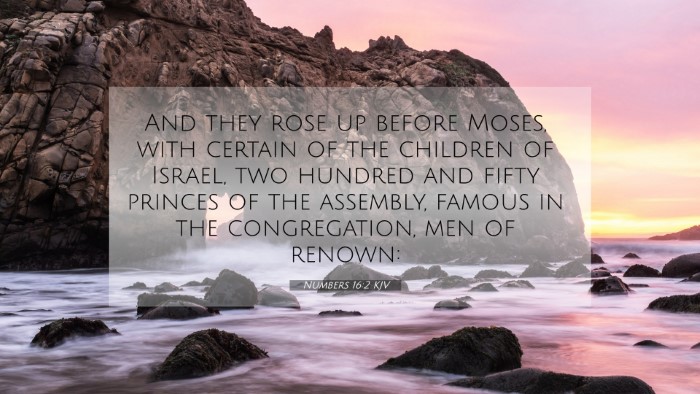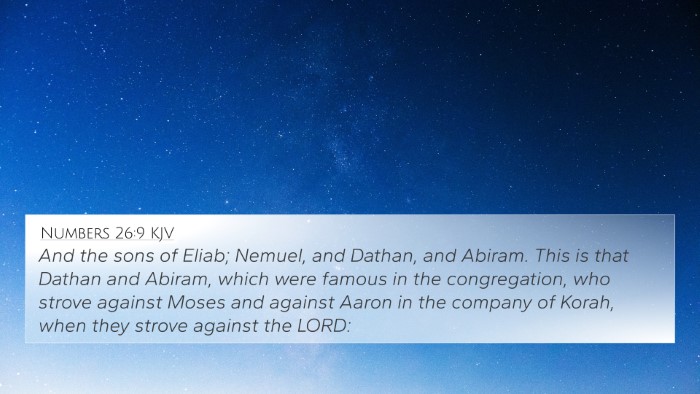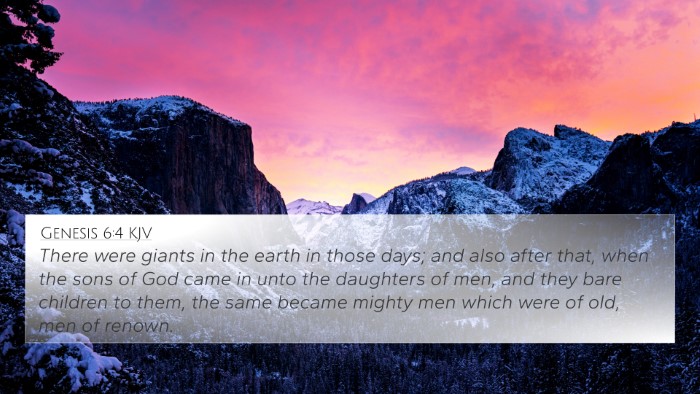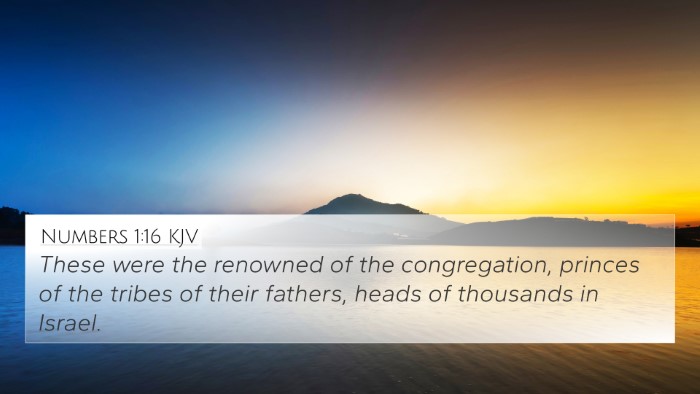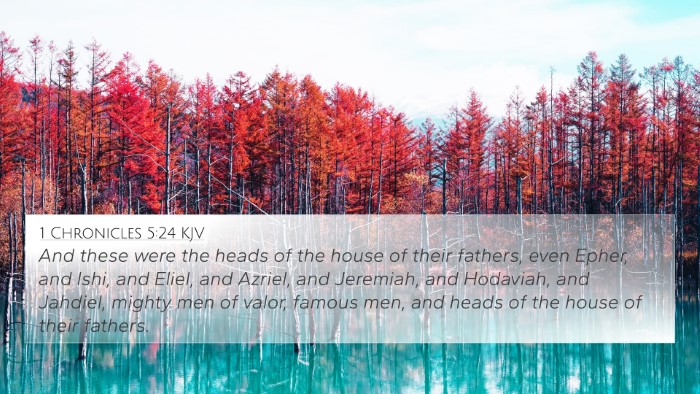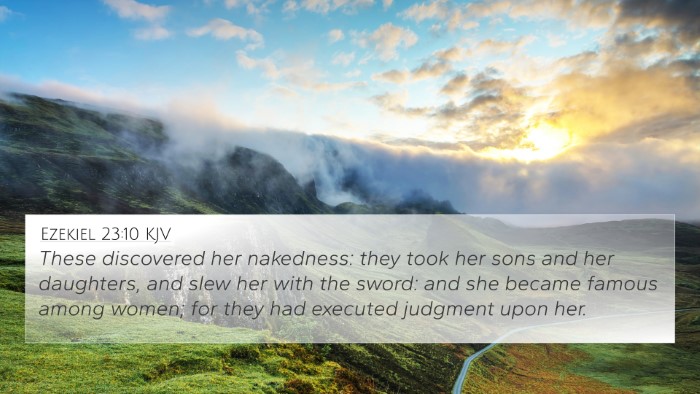Meaning and Interpretation of Numbers 16:2
Numbers 16:2 states: "And they rose up before Moses with certain of the children of Israel, two hundred and fifty princes of the assembly, famous in the congregation, men of renown." This verse describes a significant rebellion led by Korah against Moses' leadership. To glean a deeper understanding of this scripture, we will draw insights from various public domain commentaries, elucidating its themes and implications.
Contextual Overview
The backdrop of this passage is crucial. The Israelites, having been freed from slavery in Egypt, are wandering in the wilderness. Moses, as the appointed leader, is facing opposition from Korah, a Levite, who challenges the divinely ordained leadership structure. This event marks a pivotal moment in Israel's journey, emphasizing issues of authority, rebellion, and accountability.
Key Insights from Commentaries
-
Matthew Henry:
Henry emphasizes the audacity of Korah and his followers, indicating their desire for power and the danger of discontent in a congregational setting. He suggests that their uprising stemmed from envy of Moses' unique relationship with God and authority, illustrating the theme of rebellion against divinely established order.
-
Albert Barnes:
Barnes notes the striking characteristics of the individuals who joined Korah – they were described as "princes" and "men of renown". This highlights that opposition often comes from those who are influential and respected, making it all the more perilous. The rebellion showcases how even established leaders can be swayed by pride and ambition.
-
Adam Clarke:
Clarke interprets this verse as a manifestation of human nature's inclination towards strife and division. He points out that Korah’s actions reflect a misunderstanding of God's appointing authority – that leadership is not merely about popularity or prestige, but divine calling and obedience.
Thematic Connections
This passage connects to broader themes of leadership and accountability in scripture. It raises questions about who is fit to lead and the consequences of rebellion against God's chosen leaders. There is a significant emphasis on the dangers of pride, ambition, and discontent among those who ought to be united.
Cross-References
The verse can be cross-referenced with several other biblical passages that explore similar themes:
- Exodus 32:1-6: Discusses a rebellion against Moses during his time on the mountain.
- 1 Samuel 15:23: Explores the consequences of rebellion against God as akin to the sin of witchcraft.
- Matthew 20:25-26: Jesus teaches about servanthood and leadership, contrasting worldly ambition with divine calling.
- Acts 5:1-11: The story of Ananias and Sapphira highlights rebellion and dishonesty within the early church.
- Hebrews 13:17: Admonishes believers to obey their leaders, linking to the theme of proper respect for authority.
- Jude 1:11: Warns against rebellion and references Korah specifically as a negative example.
- Revelation 12:7-9: Discusses rebellion in the heavenly realm, reflecting the ongoing battle between good and evil.
Conclusion
In summary, Numbers 16:2 serves as a poignant reminder of the complexities of leadership and the ever-present threat of discord and rebellion among God's people. By referencing public domain commentaries, we see the rich layers of meaning behind this verse, connecting it to broader themes within the biblical narrative. The critical lesson here is the importance of recognizing and honoring divinely ordained authority while being wary of the pitfalls of ambition and discontent.
Further Study on Cross-Referencing
For those interested in exploring the connections between Bible verses, employing a Bible concordance or Bible cross-reference guide can be invaluable. Understanding the relationships between scripture enhances comprehension, offering a more comprehensive view of themes throughout the Bible.
